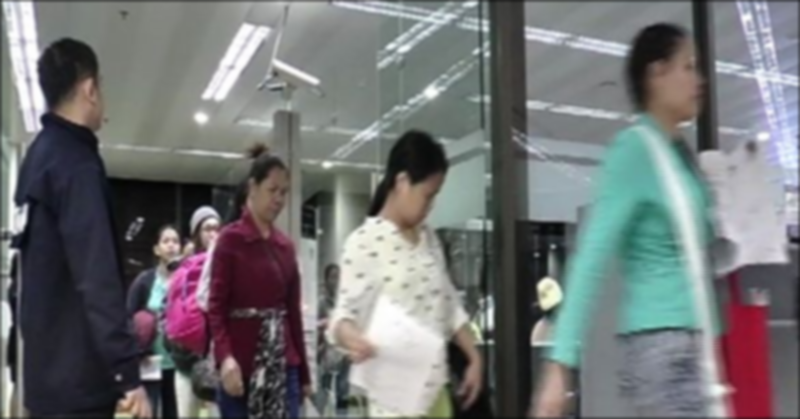Filipinos, wherever they are in the world, as in the case of overseas Filipino workers (OFWs), do not lose their basic rights as citizens despite living away from their homeland for quite some time.
ALSO READ: OFW Welfare a Top Priority During President Duterte’s SONA
OFWs retain, among others, their right to vote, their right to protection of the State, as well the right to freely enter and exit the Philippines. However, with these rights come responsibilities that OFWs must also bear as Filipino citizens. Among these things is the obligation to duly pay their taxes to the Philippine government.

Taxes that OFWs Need to Pay in the Philippines
However, as the Bureau of Internal Revenue (BIR) reiterated the tax treatment of income earnings and money remittances of OFWs in Revenue Regulation No. 1-2011 and amended in part by Revenue Regulation No. 11-2012, a question is now raised: Are OFWs required to pay income taxes?
To restate the question: Are OFWs, then, salaries tax-exempt? By definition, an OFW is a Filipino citizen employed outside the Philippines and is physically present in that country or territory in order to perform work. Therefore, OFW wages and salaries are paid by an employer based abroad and is not borne by any entity or employer in the Philippines.
Of note, to be officially recognized as an OFW, the Filipino must be duly registered with the Philippine Overseas Employment Administration (POEA) as an OFW.
According to Philippine taxation laws, all Filipinos are to be taxed based on the taxable income derived within and outside the Philippines. By this mandate, regardless of source and its location, all incomes earned by citizens of the Philippines are taxable.
However, based on the reiterated Revenue Memorandum No. 1-2011 as per the BIR, the wage or income of an OFW “arising out of his overseas employment is exempt from income tax.”
Since OFWs are already being taxed in their country of employment, the Philippines will “exempt” or no longer tax this income by virtue of Tax Reciprocity – the same way expats in the Philippines are no longer taxed in their home countries since they are already being taxed here.
Just to clarify, as per BIR, income earnings of OFWs from business activities or properties within the Philippines are still subject to Philippine income tax.
This means that despite being abroad, as long as they receive income from sources within the Philippines, these incomes must be reported to the BIR and OFWs must pay appropriate taxes.
The following list shows the tax rates for incomes received within the Philippines:
- For regular income received in the Philippines, the tax rate is 5 to 32% depending on the Philippine Income Table Tax posted by the Bureau of Finance.
- On interest income from any bank deposit and yield or any monetary benefit from deposit substitutes and from trust funds and similar arrangements: 20% final tax
- On interest income from long-term deposits or investment in the form of savings, common or individual trust funds, deposit substitutes, investment management accounts, and other investments, if terminated or pre-terminated by the holder before the 5th year: 5% / 12% / 20% final tax
- On royalties received on books, as well as literary works and musical composition: 10% final tax
- On any other royalties: 20% final tax
- On prizes and winnings amounting to PHP 10,000 or less (except Philippine Charity Sweepstakes and Lotto winnings): Regular income tax rate of 5 to 32%
- On all other prizes and winnings (except Philippine Charity Sweepstakes and Lotto winnings): 20% final tax
- On cash or property dividends: 10% final tax
- On capital gains from the sale, exchange, or other disposition of real property in the Philippines classified as capital asset, based on gross selling price or current fair market value, whichever is higher: 6% final tax
But the most important thing, at least for OFWs, is the tax exemption on salaries and other tax exemption benefits on travel tax, airport fee, and documentary stamp taxes (DST).
Recently, however, the BIR required banks and non-bank remittance companies to submit to their office a quarterly summary of OFW remittances. The report includes the name of the OFW sender, name of recipient in the Philippines, the amount of remittance, and the proof of entitlement to DST exemption. The measure set was to ensure that only legitimate OFWs are receiving the exemption privilege in paying the DST.
In order to avail DST tax exemption for OFWs, senders or recipients of the remittance must show proof that they are entitled to the exemption.
Any of the following documents may be presented to banks or remittance companies to qualify for the exemption:
- The OFW’s Overseas Employment Certificate (OEC);
- Valid membership certificate from the Overseas Workers Welfare Administration (OWWA); or
- Electronic receipt (e-receipt) issued by the POEA
To ensure smooth flow of transactions and to avail the due DST tax exemption for OFWs, be sure to have any of the above documents at hand prior to your remittance transactions. The government is really doing its best to provide a number of benefit (programmes) for OFWs, and it’s actually exciting to see what the administration will come up with next for this sector.